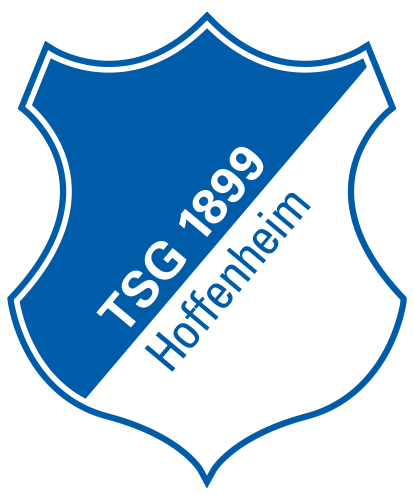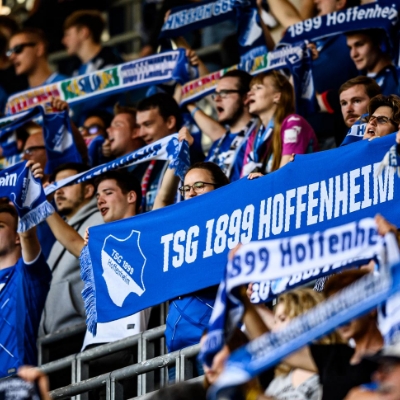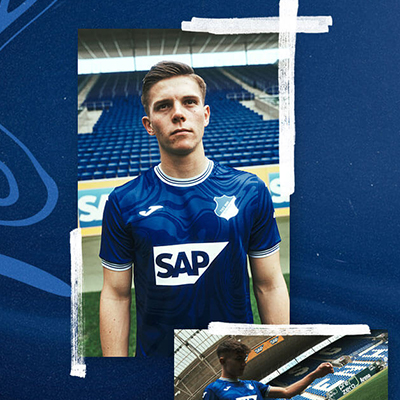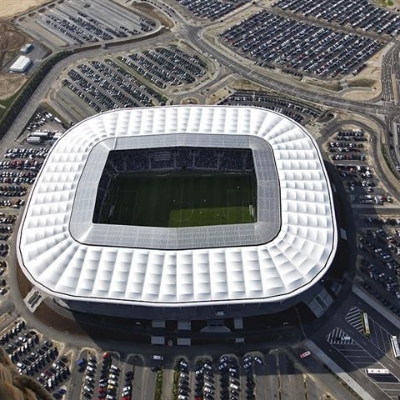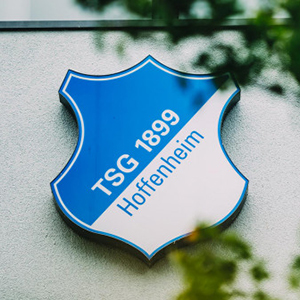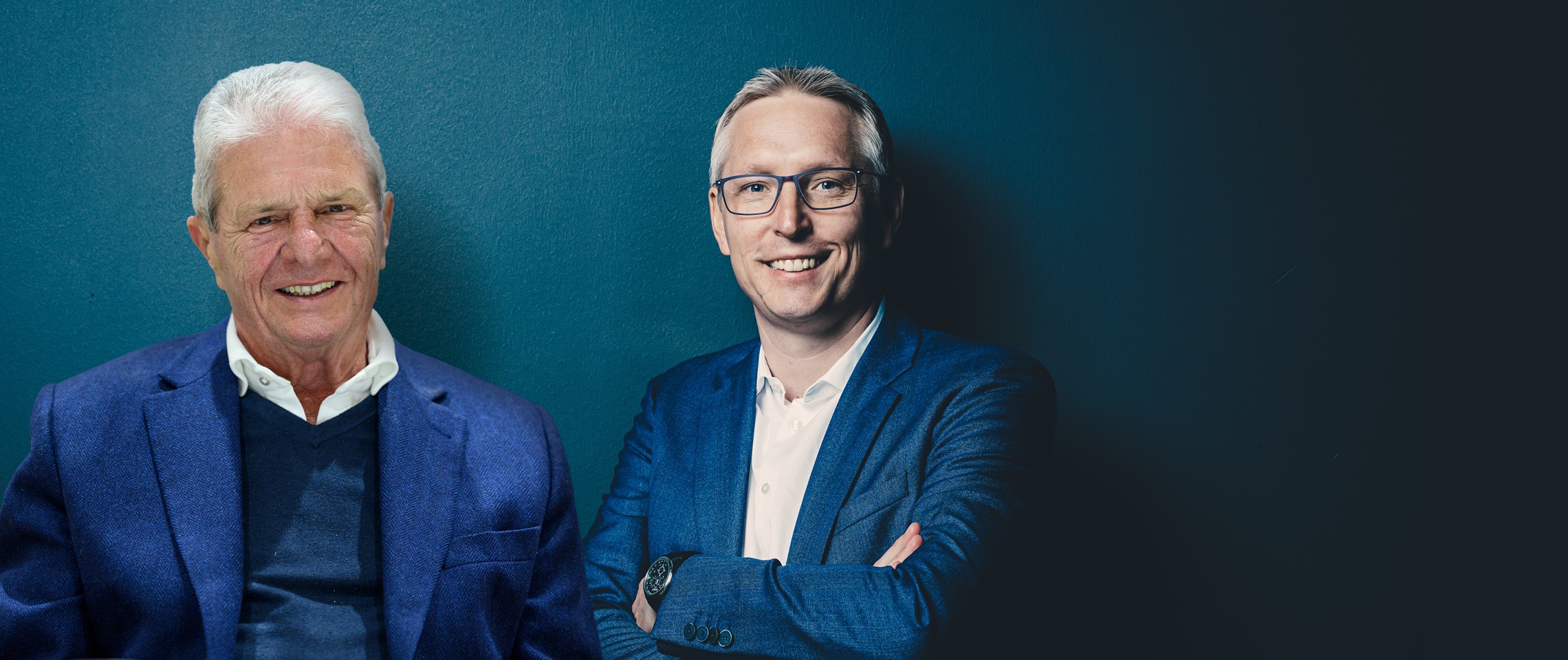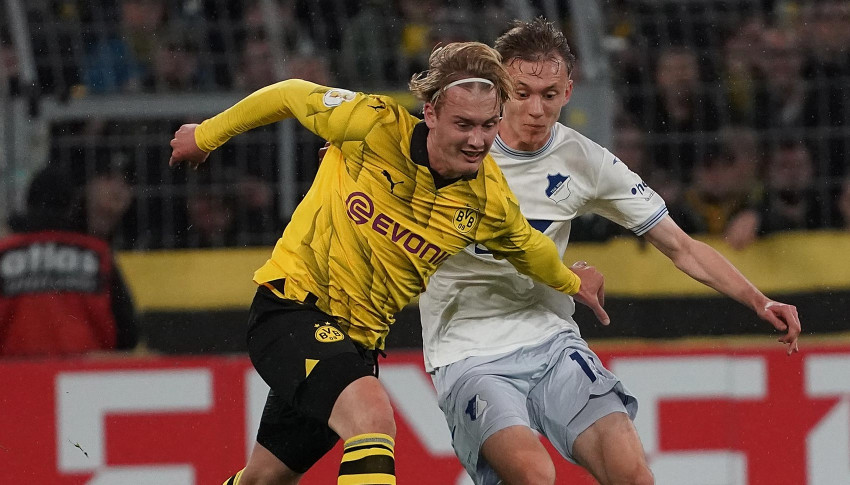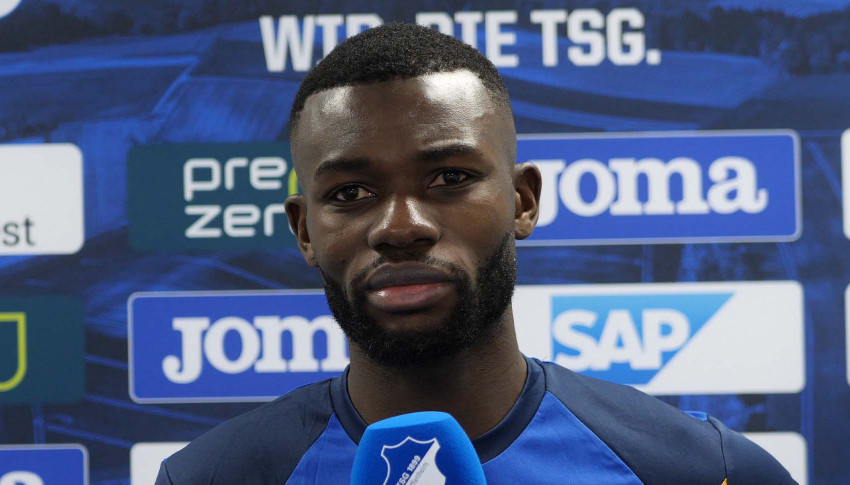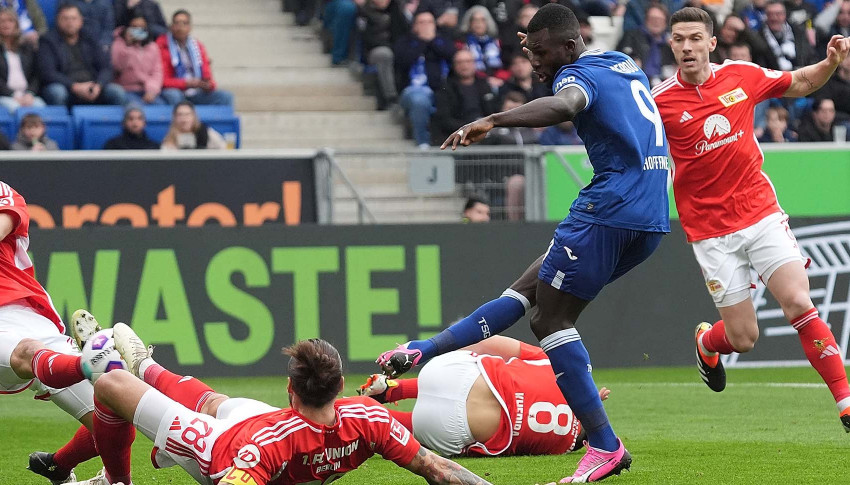"I just want to be treated like a normal person"
The Bundesliga is currently suspended due to the corona pandemic, initially until 2 April. What's your take on the DFL's decision?
Dietmar Hopp: "This suspension is absolutely necessary, because the health of the public must take precedence. There cannot and must not be any debate about that. Football can't cut itself off from society – and we would do well not to claim any special treatment in this absolute crisis and in this exceptional situation."
Frank Briel: "All other issues must take a backseat – and I also say that knowingly in my role as a managing director whose responsibilities include finances. Nonetheless, it's also our duty to develop scenarios about how we can proceed. We're coordinating closely on this and naturally we're acting a bit without a safety net as the situation is changing on an almost hourly basis."
Club representatives have recently explained that there were scenarios other than an immediate suspension, and pointed towards the financial impact. The Bundesliga is losing around €75 million in TV income per matchday.
Briel: "The current corona crisis is an unprecedented challenge for our society and our economy – and, by extension, for a collection of professional clubs that are predominantly medium-sized. The financial consequences are easy to determine for every individual licensed club. Clubs are immensely dependent on media, sponsoring and spectator revenue. Matchday operations form the basis of our finances. The football industry has a responsibility as an employer, directly or indirectly, for approximately 56,000 staff. To put it quite bluntly, it is a question of pure survival for many clubs. With that in mind, I think it is understandable – and, at the same time, indeed the obligation of the German Football League and all the clubs – to analyse all the scenarios for keeping professional football going and for D-Day. What we need to do now is to work towards good solutions together."
Hopp: "There are innumerable small and medium-sized companies in this country facing these problems, and many people are having to accept tremendous restrictions and strains. What applies to football applies to them too: this is the moment for solidarity. The stronger must help the weak. I would hope that this very obvious expression of solidarity finds consensus among all the protagonists in the Bundesliga. For professional football, the question is: how must we financially underpin this expression of solidarity in such a way that we find a good solution for those clubs whose existence is threatened more by the losses than other clubs. I highly sympathise with the idea of a solidarity fund to combat this exceptional situation. No ideas must be taboo here. We at TSG will certainly come up with an idea as to how we, the club of this region, can make a contribution in this emergency situation."
The crisis that has been caused by the spread of the coronavirus does not appear surmountable. Social life has almost come to a standstill, while all major sporting events including the European Football Championship and the Olympic Games in Tokyo are hanging by a thread.
Briel: "Given the unique pace at which the virus is spreading, nobody can say in good conscience or with full conviction about what the world, and also the sporting world, will look like in six weeks. That's the fact of the matter. We're all taking it day by day."
Hopp: "We will – as much seems clear to me from my many discussions with virologists, researchers and experts – need to have a lot of patience. A virtue that is not a given for everyone."
You yourself, Mr. Hopp, have shown great patience. You've been the main investor in the company CureVac almost since it was founded and you've invested more than €150 million in the firm since 2006. Now the Tübingen-based company is suddenly known across the world because it is researching into a vaccination for the coronavirus Sars-CoV-2.
Hopp: "Most people are not overly aware of my private financial involvement in the biotech sector, even though I've already invested around €1.5 billion across a range of start-ups in this segment. I invested in CureVac back when it was still a very young company because it had, and still has, innovative ideas and scientific approaches as regards the development of vaccinations. The hope at the time was that we'd be able to find a cure for cancer. We want to make a contribution to stopping such an awful illness. That was and remains my motivation."
U.S. President Donald Trump now wants to wave lots of money at the CureVac researchers to lure them from Tübingen to the U.S.
Hopp: "We want to develop a vaccination for the whole world and not for one country, not for certain classes and not for certain parts of the planet. This vaccination, once it has been successfully developed and tested, is not to be an instrument for speculation or power; rather, it is to help to contain a global crisis. That's my wish."
Let's come full circle now and talk about the accusations that have increasingly been levelled against you in football stadia, where certain Ultra groups have erroneously made you the target of their protests as the "face of commercialisation" in football.
Hopp: "I started playing football at TSG Hoffenheim, my hometown club, as a 14-year-old lad in 1954 – following the Miracle of Bern. Thanks to special medical authorisation, I was then allowed to play for the TSG senior side as a 17-year-old and was even still involved while I was a student in Karlsruhe. It really does require a vivid imagination to see me as the embodiment of the commercialisation of football."
You then funded the club later on once you had become the chairman of SAP.
Hopp: "I started to provide my hometown club, which had just been relegated to the A-Class, with financial support in 1989 – first and foremost to promote youth work. That was my condition. Just to reiterate once more: we're talking about the year 1989, when the GDR still existed."
There was no talk of the Bundesliga.
Hopp: "The dream was to reach the Oberliga, where SV Sandhausen were playing in those days. TSG fulfilled this dream after 11 years, and with Hansi Flick from the neighbouring town of Bammental as the coach we were then surprisingly promoted to the Regionalliga in 2001. But I'd like to emphasise: the youth work was exemplary; the TSG U19s were promoted to the Bundesliga in 2005, while the U17s also played in the top flight and became German B-Junior champions in 2008. Since 2001, there has been more to this exemplary youth work at TSG than just football. To the same degree they are trained in sport, all young female and male players are systematically supported through their schooling and professional training too. The focus is on the person and not on the footballer."
The parties in question gave the impression during their protests that TSG is a plaything for you personally.
Hopp: "The original idea to have a Bundesliga club in the sport-mad metropolitan region of Rhine-Neckar again was a long-standing wish of the Sportarbeitskreis (Sport Working Group) in the region. I informed them of my willingness to actively contribute to this idea and to support it. As a Regionalliga club, TSG was at that time highly qualified in sporting terms and boasted exemplary youth development work. So it seemed obvious to strive towards fulfilling this vision with TSG Hoffenheim for the entire sporting region. When we signed Ralf Rangnick in 2006, our plans to reproduce what the youth teams had achieved and to get our senior squad to the Bundesliga went up a notch."
Briel: "Having been there at the time, I can confirm that 2006 marked the start of the period in which Mr Hopp invested in a targeted manner but always with the clear stipulation: TSG must become self-sufficient as soon as possible. Since 2011, so for almost a decade, Mr. Hopp has not made a single additional investment in TSG."
Does that mean that a precise figure can be put on Mr. Hopp's financial involvement?
Briel: "Between 2006 and 2011, Dietmar Hopp invested around €230 million to put together a competitive team – including a backroom staff, a medical department, a scouting network – and to establish a functioning corporate structure. In addition, Mr. Hopp constructed the necessary infrastructure such as the stadium and the training centre plus the headquarters and rented them to TSG – for around €5 million a year."
Hopp: "This infrastructure was financed completely privately – without a cent of taxpayers' money. Which is why I am frustrated by this theory of an alleged distortion of competition. Nobody speaks about the clubs whose stadia were funded by the taxpayer. Nobody speaks about the clubs who have a large catchment area and a fantastic and free-of-charge public infrastructure with airports and train stations. Nobody debates about the investors and major sponsors of other clubs. Where do we draw the line?"
Instead TSG Hoffenheim has SAP, the software company that you co-founded in 1972, as its main sponsor.
Hopp: "I left its Supervisory Board in 2005, so more than 15 years ago. Of course I feel a regional and personal closeness to SAP, but above all I feel a close connection to the content. Thanks to our joint expertise in the field of innovation, they are simply an extraordinarily good fit for TSG Hoffenheim as a partner."
But the club is on an outstanding financial footing.
Briel: "Despite the facts that Mr. Hopp has outlined, however, the partnership is not a foregone conclusion. The sponsoring revenue from SAP amounts to less than €6 million per year, and that leaves us in mid-table in the division. We're very thankful to our partner SAP for their loyalty. But at the same time, SAP have extremely high demands of us as a partner. We do not get handed a blank cheque, as some people who make TSG out to be a company club might presume."
Briel: "The club has generated successive surpluses since 2015; the cumulative total of the profit from the past four seasons stands at more than €60 million and we are set to close the current year with a fantastic result as well. We have conducted ourselves economically, as you have to do as a medium-sized company. Because given the size of their turnover and their number of employees alone, professional clubs are nowadays exactly that – medium-sized economic enterprises. Especially in the current crisis, we benefit from the fact that we have conducted ourselves with prudence."
Hopp: "But thinking economically and acting in a financially sound manner doesn't necessarily mean that you're disregarding values such as solidarity or fairness. They are by no means mutually exclusive. For me, Paragraph 14 of the modified German Constitution has always applied: 'Ownership creates obligation, wealth does even more so.' Hence why I've done things privately and, in around two years' time, my foundation will have made the total sum of €1 billion available to society. And that's how I also see my involvement in football, even though unfortunately many other people don't want to see that."
To almost bring our interview full circle to where it started, do you then both understand the criticism of the commercialisation of football?
Briel: "We are, I think, all in agreement that there is good reason to have a debate and even a lively discussion about the limits and scope of developments within football. If you look at the transfer fees and the advisor fees or the wage structure at some clubs, you'll see that football is becoming increasingly isolated in a bubble of its own. That needs to be addressed and, by the way, that can undoubtedly be criticised, loudly too. What concerns us is purely and simply the fact that Mr. Hopp, of all people, has been insulted in a disgusting and intolerable way. Saying in this context that Dietmar Hopp has become simply a "symbolic figure" and that it's actually not meant that way is grotesque."
Hopp: "When it comes to the topic of commercialisation in football, I'd recommend casting your eyes back: Borussia Dortmund KGaA is to date the only stocklisted limited liability company in football; the IPO, which came in 2000 at the time of the supposed 'new economy', brought in a figure in the three-digit million range. At this point, TSG Hoffenheim were playing in the Oberliga against FC Teningen. Four years later, when BVB was on the verge of ruin, a dubious financial juggler – and that is putting it mildly – invested €20 million in Borussia for a 25% share."
Briel: "But what makes it all the more irritating is that this is where the extreme hostilities began. It was in 2008 at Dortmund's first away match against TSG that the disgusting cross-hairs banner with the wording "Hasta la vista Hopp!" was brought into the stadium."
Mr. Hopp, almost three weeks have passed since the most recent attacks on you personally. How are you doing and what are your hopes, generally speaking, for the future of football?
Hopp: "First and foremost, we all wish – completely independently of football – that the global community effectively combats the corona pandemic and that we all overcome this challenge together. That's the absolute priority. As far as I am concerned personally: obviously I know that treatment in football grounds can be rough from time to time. But I am not equating this with emotional insults at a football stadium. I don't need to and cannot tolerate that. These are concerted and prepared actions, banners and threats. The advice of letting it in one ear and out the other is something I have heeded for many years. But it has not changed; quite the contrary, in fact. It's got massive. But all of that is not going to prompt me to abandon my path of social and sporting involvement. I would just like to emphasise one thing: in football we have common rules, both on the pitch and off it. Both we as TSG Hoffenheim and I personally have strictly abided by the rules, in the case of 50+1 for example. But if I now – as some of the Ultras seem to be doing – protest against these rules, then I also need to speak about these rules as well. If, instead of doing that, you attack a club or an individual person who have abided by the rules, then you are completely missing the point. Over the course of recent weeks, I've often had to read: 'The old, white man, the billionaire, has special protection.' To that I say: No I don't want any special treatment. But I don't want to be penalised just for being almost 80 years old and wealthy. I just wanted to be treated like a normal person."


